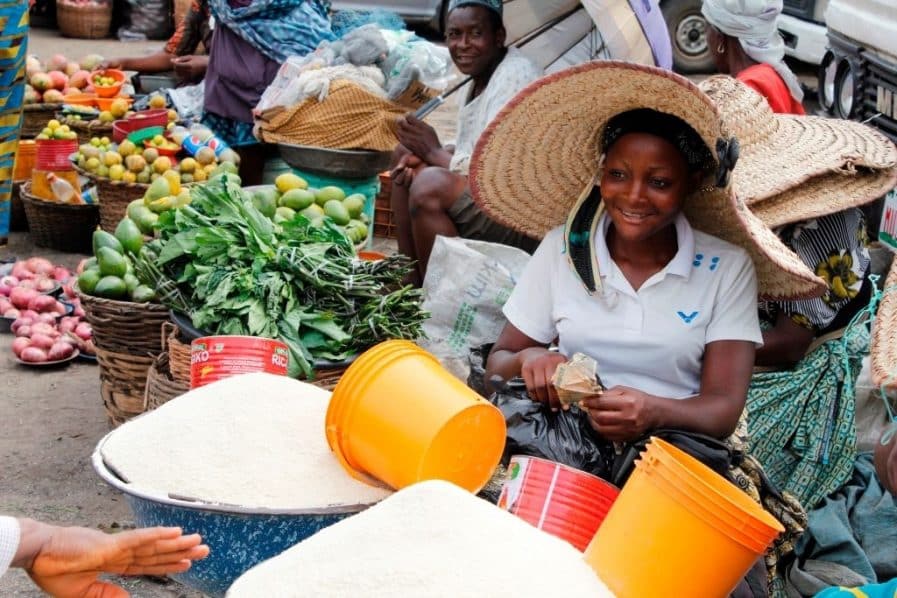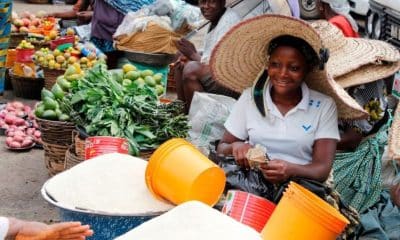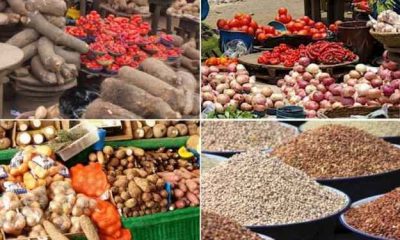Nigeria News
List Of States With Cheapest Cost Of Food, Healthy Diets In Nigeria

The rising cost of food has brought severe consequences for Nigerians in recent times, with many families struggling to afford a healthy diet per day.
In 2024, the cost of essential food items has significantly increased, placing a heavy burden on household budgets and leading to a rise in food insecurity.
Reports from various news sources depict a bleak scenario, with staple foods such as rice, garri, tomatoes, beans, and yam experiencing substantial price hikes.
Unfortunately, these increases have a disproportionate impact on low-income families, who already allocate a larger portion of their income towards food expenses.
The National Bureau of Statistics (NBS) recently confirmed the concerning trend.
Although their most recent report may reflect a situation from a few months ago, it still highlights a worrisome rise in food inflation, potentially surpassing 30% on a year-on-year basis.
It is important to acknowledge that several factors contribute to this challenge, including global trends, currency depreciation, insecurity and logistics, as well as drought and climate change, among others.
Global trends play a significant role, as the conflict in Ukraine has disrupted global food supplies, leading to an increase in international food prices.
Since Nigeria relies on imports for certain food items, it is directly impacted by these price hikes.
Currency depreciation also exacerbates the situation, as the weakening of the Naira against major currencies makes imported food even more expensive for Nigerians.
Insecurity and logistics further compound the issue.
In regions affected by insecurity, agricultural production and transportation are disrupted, resulting in limited food supply and higher costs.
Additionally, drought conditions in some parts of the country can negatively affect crop yields, leading to a decrease in overall food availability.
Naija News reports that addressing these challenges requires a comprehensive approach that involves both short-term and long-term solutions.
It is crucial for the government, in collaboration with relevant stakeholders, to implement measures that mitigate the impact of these factors on food prices and ensure food security for all Nigerians.
Cost of a Healthy Diet (CoHD)
Healthy balanced meals have become increasingly expensive, leading many Nigerians to carefully choose their daily food intake to avoid spending too much.
Consequently, the choice to eat nutritiously has been pushed aside in favour of simply not going hungry.
The most affordable mix of foods available locally that meet global dietary standards is referred to as the Cost of a Healthy Diet (CoHD).
It acts as a measure of the affordability and availability of nutritious meals.
A recent publication by the National Bureau of Statistics titled “Cost of a Healthy Diet”, revealed that in March 2024, the average cost of a nutritious diet for a person was ₦982.
This was 4.7% higher than the figure reported in February 2024 (₦938).
The cost of a healthy diet for an adult in the South West was ₦1,198 in March 2024, compared to ₦787 in the North West.
On a national scale, the average cost of a healthy diet for an adult was N982 in March 2024, showing a 4.7% rise from the previous month, as reported by the National Bureau of Statistics (NBS).
There were noticeable differences across regions, with the South-West having the highest average cost at ₦1,198 per day, and the North-West having the lowest at ₦787 per day.
Below is the list of 10 states in Nigeria where eating a healthy diet is the least expensive.
| Rank | State | CoHD (in Naira) |
|---|---|---|
| 1. | Katsina | ₦739 |
| 2. | Sokoto | ₦758 |
| 3. | Zamfara | ₦766 |
| 4. | Kaduna | ₦777 |
| 5. | Niger | ₦810 |
| 6. | Kogi | ₦812 |
| 7. | Kebbi | ₦821 |
| 8. | Kano | ₦821 |
| 9. | Jigawa | ₦826 |
| 10. | Kwara | ₦838 |










